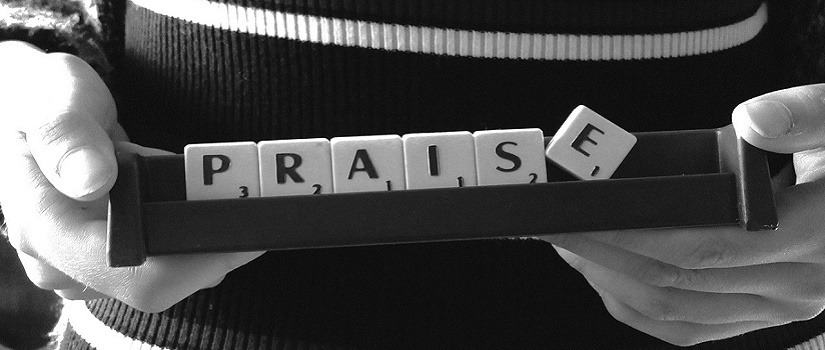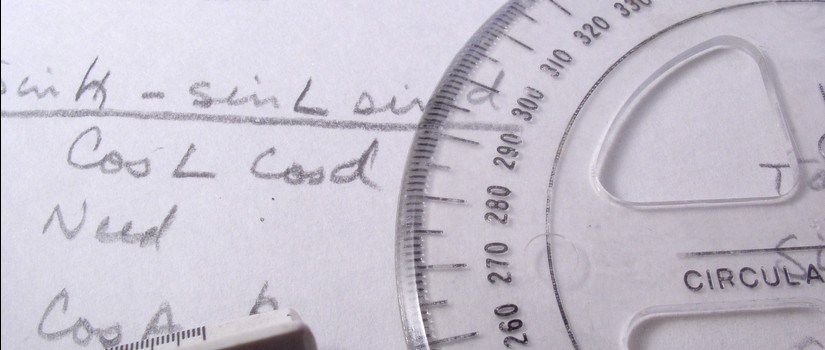It comes from the pulpit, the pew, and out of so many mouths in Apostolic culture. It is a haphazard disrespect to God and a disservice to our privileges as believers. No, it’s not gossip nor slander though they each wreak havoc enough in their own right. Someone in our movement needs to address mock praise.
But we all know that Spirit-filled Apostolics would never praise God from an insincere heart or take His name in vain. Right?? Yet how casually it slips off our tongues – – “Halleluyah !” “Praise the LORD!” “Glory to His Name!” It just flows naturally as an outburst of holy praise. But is it praise? Is it even holy? Taking the name of God in vain implies more than actually saying the word “God” or “ Jesus” or giving the Lord the last name. It connotes irreverence and carelessness. It happens so often that we just accept using praise phrases in the wrong context as natural. “Well, that’s just great, praise God!” And my personal favorite “Well, Bless God….” which is usually followed by a string of unchristian-like suggestions or profane babblings. The concept of God or what His name signifies is far from our minds when we utter them. Often we use them in place of “gosh”, “geez”, or “bleep”, simply like an exclamation mark to punctuate our thoughts. We’ve even said it to provoke humor when a riotous joke is concluded with “Praise GOD!” Not to mention those instances where we throw out such expressions to emphasize spirituality. How about when mock praise is said through gritted teeth? We feel pressured and forced to “praise God anyhow” when we don’t feel like it. Are we really praising? Or is it habit and ritual?
I am by no means suggesting that we remove these expressions from our vocabulary. However, real praise is getting beyond ourselves. It is letting problem and circumstance of daily life get beneath your radar for the time being. Prayer is for petitions, supplications, and the like, but praise is for and to God. God instructed Moses regarding the use of incense in His tabernacle. Incense, a type of praise and worship, was set apart, not distributed casually among the crowd. “…it shall be unto you most holy. And as for the perfume which thou shalt make, ye shall not make to yourselves according to the composition thereof: it shall be unto thee holy for the LORD. Whosoever shall make like unto that, to smell thereto, shall even be cut off from his people.” (Ex. 30:36-38) It was considered a mockery to create an imitation of praise. We might find ourselves doing just that with fake lip-service. But, even more, blasphemous was to take the very incense used in the Tabernacle for unholy, menial applications. Could you just imagine the shock Aaron would have created to waltz out of priestly service and announce to the people “I vote we set up altars of incense on every street corner! The smell is so sweet and I think it would only add to our lifestyle here in the wilderness.” Hardly plausible you say? Consider how we utilize sanctified speech in our own lives because the sound is just so appealing. Vocal praise has an important place in our day-to-day activities, but should never be said apart from the awareness of the presence of God. As if we were simply adding sprinkles to a cupcake.
Jewish families knew the seriousness of flippancy in service to God, especially when it came to the words they spoke in reference to Him. The abbreviated YHVH was a safe substitution lest at any time they profane the representation of His name. We have drifted so far from this philosophy that we shout the name of Jesus on a whim. That is not to diminish from the power, authority, or necessity of that Name, but to draw attention to an idle attitude toward it. “In Jesus name” is not a magic formula, (Remember the sons of Sceva?) or a rubber-stamp to let everyone know a prayer has ended and its time for Amens. Most of us have heard someone utter a sarcastic or even malicious “In Jesus’ Name!” from time to time.
God does not ignore usage of the sacred for our own purposes or smile when we disregard holy things. Just ask Uzzah. Good intentions don’t always justify our actions. We need to speak in accordance with the Word. “My mouth will praise Thee with joyful lips when I remember Thee upon my bed, and meditate on Thee in the watches of the night”(Psalm 63 emphasis mine) Praise demands conscious thought. When it becomes an unconscious reaction it is in danger of becoming vain repetition. The word “praise” originally meant “to set a price on,” or, to appraise. It means to commend the worth of or to express approval. Its an expression of love and devotion to a Savior and Friend, not to add spice to our conversations. Let us not be an Absent-Minded Praiser. Just something to think about.









